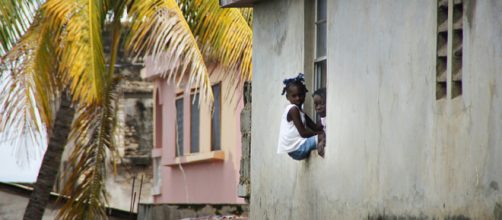Nearly 60,000 citizens from Haiti will be losing their residency permit that allowed them to live in the United States since 2010. According to the Homeland Security Department, the conditions in Haiti have improved significantly, and therefore, the benefit extended to them will end by July 2019.
A press released from the department stated that the number of displaced citizens in Haiti decreased by 97 percent since the massive 2010 earthquake. Since then, the Caribbean nation was able to safely receive citizens that have returned home.
Trump administration puts a stop on Haitian protective status
The Obama administration renewed its protection for Haitians several times when it determined the conditions in the country remained precarious. However, the Trump administration, which is seeking greater immigration controls and a tighter policy said that the program, which was only supposed to provide temporary relief, has become a permanent benefit to tens ofc thousands of people.
After meeting with Haitian government officials, Homeland Security decided that the temporary protections have to be put to an end.
Advocates called on Trump to appeal decision
Members of Congress from both parties, as well as advocates for Haitians, have asked the Trump administration to extend the Temporary Protected Status program, stating that conditions in the nation have not improved nearly enough to lead to the deportation of Haitians.
While improvements have been made thanks to international aide, Haiti remains to be one of the poorest nations in the world, with the majority of the population living on less than $1.23 per day. This is considered by authorities to mean extreme poverty.
Upon reaffirming the decision to put an end to the protective status of Haitians in the U.S., acting Homeland Security Secretary Elaine C.
Duke also stated that some of those that are covered by the program can stay if they have other claims for legal immigration status.
Tens of thousands benefit from Temporary Protected Status
Tens of thousands of Haitians benefited from the temporary protected status. Despite the large number, about 320,000 foreigners actually benefit from the program, the largest group being from El Salvador, with 200,000 beneficiaries.
Homeland security will also announce next month whether or not these citizens will enjoy continued benefits of staying in the U.S. This protection applies to Salvadorans who arrived in the United States without permission on February 13, 2001, to escape their country, which is plagued with gang violence and high unemployment rates.
Last month, protection for 2,500 Nicaraguans ended, although protection for Hondurans still continues despite pressures from the Trump administration to end them. Today, people from Nepal, Somalia, Sudan, South Sudan, Yemen, and Syria still enjoy the temporary protection program.


